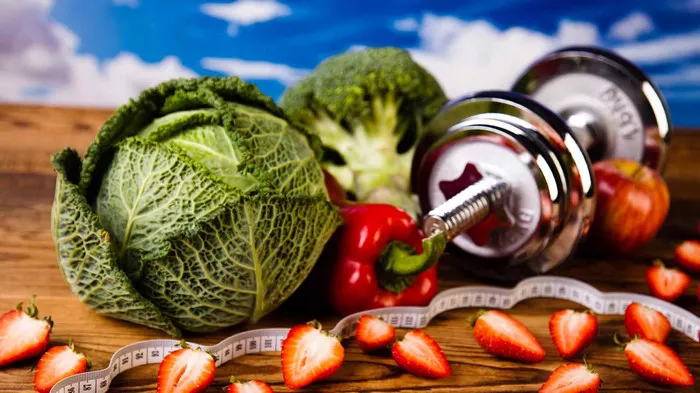In the pursuit of a healthier lifestyle, shedding excess belly fat is a common goal for many men. While exercise plays a crucial role, nutrition is equally—if not more—important in achieving sustainable and effective results. This article aims to provide comprehensive insights into the dietary choices that can help men lose belly fat. From understanding the science behind belly fat to unveiling specific food choices and dietary patterns, this guide is designed to empower men on their journey to a trimmer waistline.
The Science Behind Belly Fat: Understanding the Enemy
Before delving into dietary recommendations, it’s essential to comprehend the science behind belly fat. Visceral fat, which accumulates around internal organs, poses a higher health risk than subcutaneous fat found just beneath the skin. This type of fat is metabolically active and can contribute to insulin resistance, inflammation, and other metabolic disorders.
Moreover, hormones play a pivotal role in fat distribution. Men with higher levels of cortisol, the stress hormone, tend to store more fat around their midsection. Understanding these factors is crucial for tailoring an effective dietary approach to losing belly fat.
Balanced Macronutrients: The Foundation of a Healthy Diet
A balanced diet is key to any successful weight loss journey, and the macronutrient composition plays a crucial role. Proteins, fats, and carbohydrates are the building blocks of a healthy diet, and achieving the right balance is vital for fat loss.
Proteins:
Protein is a cornerstone for anyone looking to lose belly fat. It helps in building and repairing muscles, boosts metabolism, and promotes satiety. Lean protein sources like chicken, turkey, fish, tofu, and legumes should be incorporated into daily meals.
Fats:
Healthy fats, such as those found in avocados, nuts, seeds, and olive oil, are essential for overall health. They contribute to hormone production and assist in nutrient absorption. Moderation is key, as fats are calorie-dense, but including them in a balanced diet is crucial for sustainable weight loss.
Carbohydrates:
Opting for complex carbohydrates over simple sugars is pivotal. Whole grains, fruits, and vegetables provide a steady release of energy, preventing spikes in blood sugar levels. High-fiber foods also aid in digestion and contribute to a feeling of fullness.
Strategic Food Choices for Belly Fat Loss
While a balanced diet is crucial, certain foods have been shown to specifically target belly fat and promote weight loss.
Fatty Fish:
Rich in omega-3 fatty acids, fatty fish like salmon and mackerel have anti-inflammatory properties that can aid in reducing visceral fat. Incorporating fish into the diet two to three times a week can be beneficial.
Green Leafy Vegetables:
Packed with nutrients and low in calories, vegetables like kale, spinach, and Swiss chard are excellent choices for promoting weight loss. Their high fiber content aids in digestion and helps control hunger.
Berries:
Berries are not only delicious but also rich in antioxidants and fiber. The combination of these factors can support weight loss efforts by reducing inflammation and promoting a feeling of fullness.
Whole Grains:
Choosing whole grains over refined grains can make a significant difference. Foods like quinoa, brown rice, and oats are high in fiber, promoting digestive health and helping in the management of belly fat.
Lean Protein Sources:
Incorporating lean protein sources into meals helps build and maintain muscle mass, contributing to a higher metabolic rate. This can aid in burning more calories and reducing overall body fat.
Meal Timing and Portion Control: The Fine Art of Eating
In addition to selecting the right foods, paying attention to meal timing and portion control is crucial for effective belly fat loss.
See Also:Prostate Health
Regular Meals:
Consistency in meal timing helps regulate metabolism. Aim for three balanced meals per day with healthy snacks in between to maintain energy levels and prevent overeating.
Portion Control:
Understanding portion sizes is paramount. Even healthy foods can contribute to weight gain if consumed in excess. Utilizing smaller plates, listening to hunger cues, and avoiding distractions during meals can aid in portion control.
Strategic Snacking:
Opt for nutrient-dense snacks, such as Greek yogurt with berries or a handful of nuts, to curb hunger between meals. This prevents overeating during main meals and helps maintain a steady metabolism.
Hydration: The Unsung Hero of Weight Loss
Often overlooked, proper hydration is a crucial aspect of any weight loss journey. Drinking an adequate amount of water supports metabolic functions, aids in digestion, and can help control appetite. Sometimes, feelings of hunger can be confused with dehydration, making staying hydrated an essential tool in managing calorie intake.
Exercise: The Perfect Companion to a Healthy Diet
While this article focuses on dietary strategies, it’s essential to emphasize the symbiotic relationship between nutrition and exercise. Combining a healthy diet with regular physical activity is the most effective approach to losing belly fat and promoting overall well-being.
Conclusion: Empowering Men on the Journey to a Healthier Waistline
Losing belly fat requires a holistic approach that combines nutritional wisdom with lifestyle choices. Understanding the science behind fat storage, embracing a balanced diet, making strategic food choices, and incorporating healthy habits such as hydration and regular exercise are the cornerstones of successful belly fat loss.
By making informed decisions about what goes on their plates, men can take control of their health and work towards achieving a trimmer waistline. Remember, the journey to a healthier you is not just about losing belly fat; it’s about fostering a sustainable, nourishing lifestyle that enhances overall well-being.
Related Topics:
High Levels of Male Hormones: Causes, Symptoms, and Management
What Are the Essential Supplements for Men’s Health?
10 Natural Prostate Shrinking Supplements


